Our Life Is a Movie: Dead Poets Society (1989)
/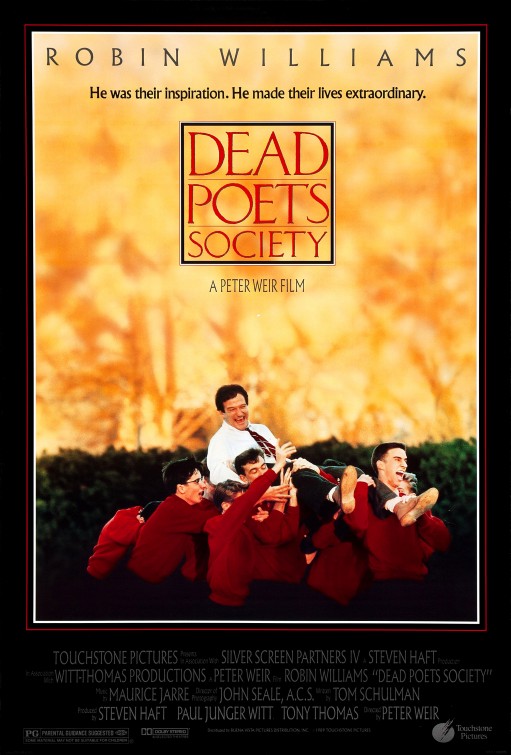
Joining the Robin Williams honorary bandwagon? I’m happy to! Dead Poets Society is one of my favorite and most influential movies, so it seems obvious to look back at it now in the late aftermath of Williams’ death. The movie works for me on many levels, mainly in its depiction of a good and unusual teacher, but also by showing an authoritative, limiting and cruel society and the effects it has on its young people. This way the film inspired me in many ways, not just for becoming a teacher. I must have seen it the first time early, when I was around 11 or 12 and I watched it again and again. What's really a shame is that in schools, the novelization is often read when there is no reason on earth not just to use the movie. Curiously, this is one of the few movies where I really disagreed with Roger Ebert (who got me into movies so much more than I already was, so I'm a big fan of his), who called it “manipulative” and full of “platitudes.” Reading his review makes you wonder how he even came up with two stars. I get what he says and maybe even understand how you could view the movie this way, but to me, it’s just a great inspirational movie. Here’s why.
Dead Poets Society works because it gives us the character of a great teacher, John Keating, played by Williams. Before we’re introduced to him, we see the school life at Welton, an elite school that celebrates the four pillars of wisdom, “tradition, honor, discipline and excellence,” which of course has nothing whatsoever to do with knowledge but only with an authoritative society that wants to turn its young men into obedient followers of the rules, no questions asked. The other teachers serve lessons as usual (and as they are still often done today): lots of workload, reciting of vocabulary, punishment and incredible boredom. It would have been easy for John Keating to burst in and win the hearts of his students even if he was just an okay teacher, because in comparison that would have been a huge improvement.
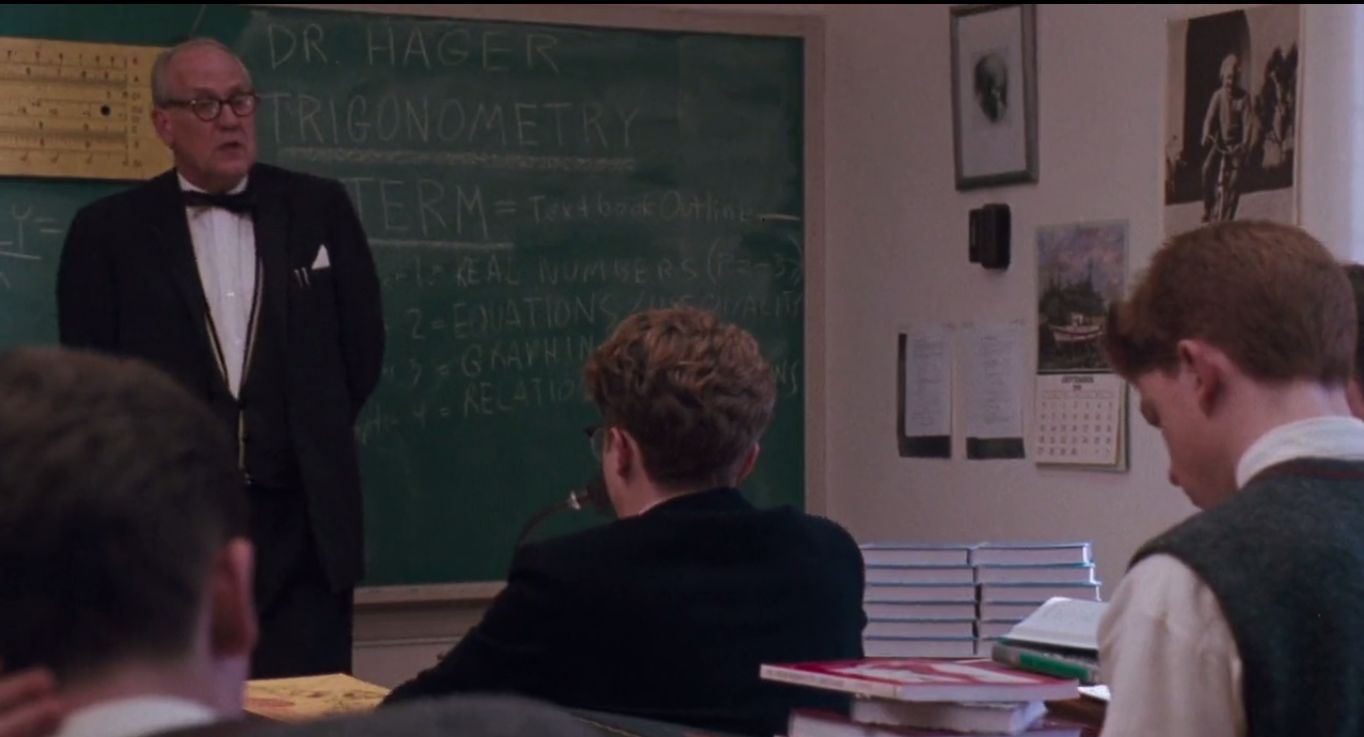
Keating is very keen on doings things differently, all the way. During their first lesson, he walks through the room, whistling, and walks out of the room, eventually urging the students to follow him (I always wanted to do that in a first lesson, but I haven't figured out where to go). He makes them look at photographs of old students to make them aware of the fact all the tradition and discipline in the world doesn’t keep them from dying and that carpe diem is more than just a Latin phrase to study. I know that this phrase has become a platitude (or maybe even was then), but it doesn’t make it less important. Growing up in a society that plans your future and doesn’t allow you much freedom of choice for anything, makes ‘seize the day’ and ‘make your lives extraordinary’ a real daring challenge. And gives you hope that you didn’t know you needed because you never really thought about questioning this system. The students’ reactions are interesting because while they laugh and are amazed, they are also confused. They aren’t used to being told anything even remotely like this. And although the movie is set in 1959, I can say from personal experience that this reaction is still very authentic because if you want to confuse students, just be different.
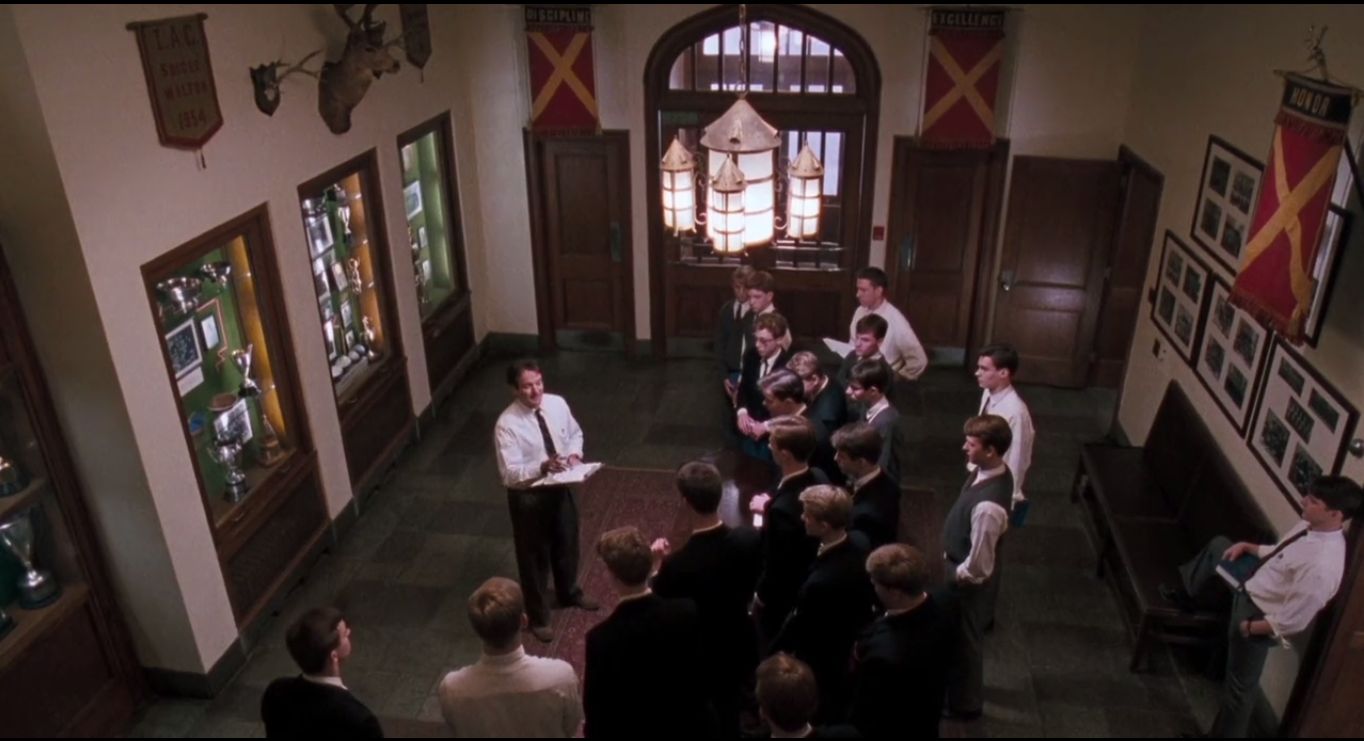
He goes on criticizing a text book’s explanation of judging poetry and asks the students to rip out the pages from their books. If you look at some modern-day text books, you should feel the urge to rip out some pages because just like Keating says, such books and the way they try to speak to young people, have nothing to do with life and passion. It’s about studying, facts, arguments and stylistic devices. At a certain age of the students, such books are completely pointless if you have any ambition to make them think for themselves. “Free thinkers at 17?” one colleague laughs at Keating. Maybe one of the greatest achievements of this movie for me was to always believe that young people at 17 (and younger!) can have amazing thoughts and that it is our job as teachers to make them realize that and encourage them, not to keep them small and narrow-minded.
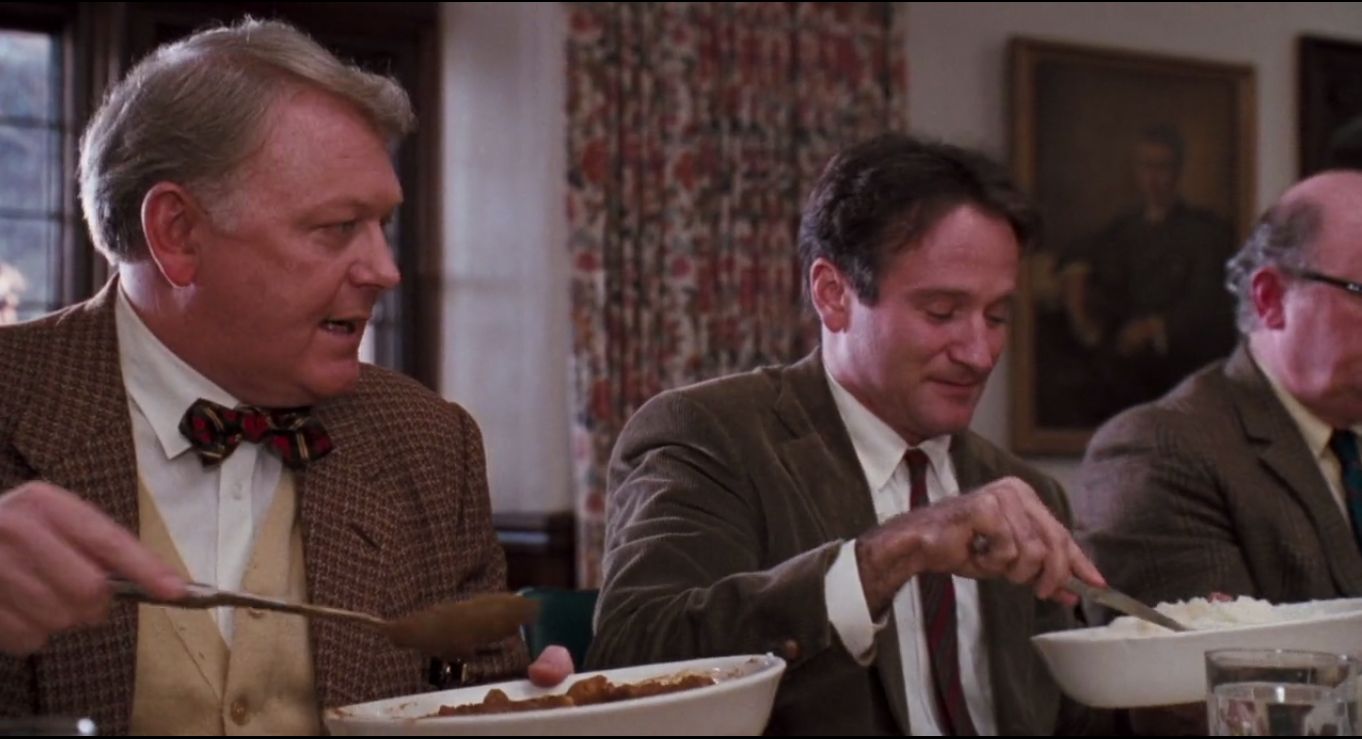
He makes them laugh and, yes, it’s Robin Williams and you can view it like the good, late Mr. Ebert and argue that being a comedian is not part of being a teacher, but humor is one of the strongest weapons of a teacher. If you make them laugh, you make them listen and as long as you have something to say to them, that’s half the business already. He famously makes them stand on their desks to get a different point of view and while I have never done that, making students see a new point of view, making them realize there are numerous perspectives and not one of them is the only right one is the main goal in all my teaching. He makes students talk who don’t like talking and uses the credo that follows me to this day: “Don’t think, answer.” He makes them realize things about themselves they didn’t know and what an amazing thing that is if you achieve that, to not just make them look at the world with different eyes but also at themselves. And of course he makes them walk their own way.
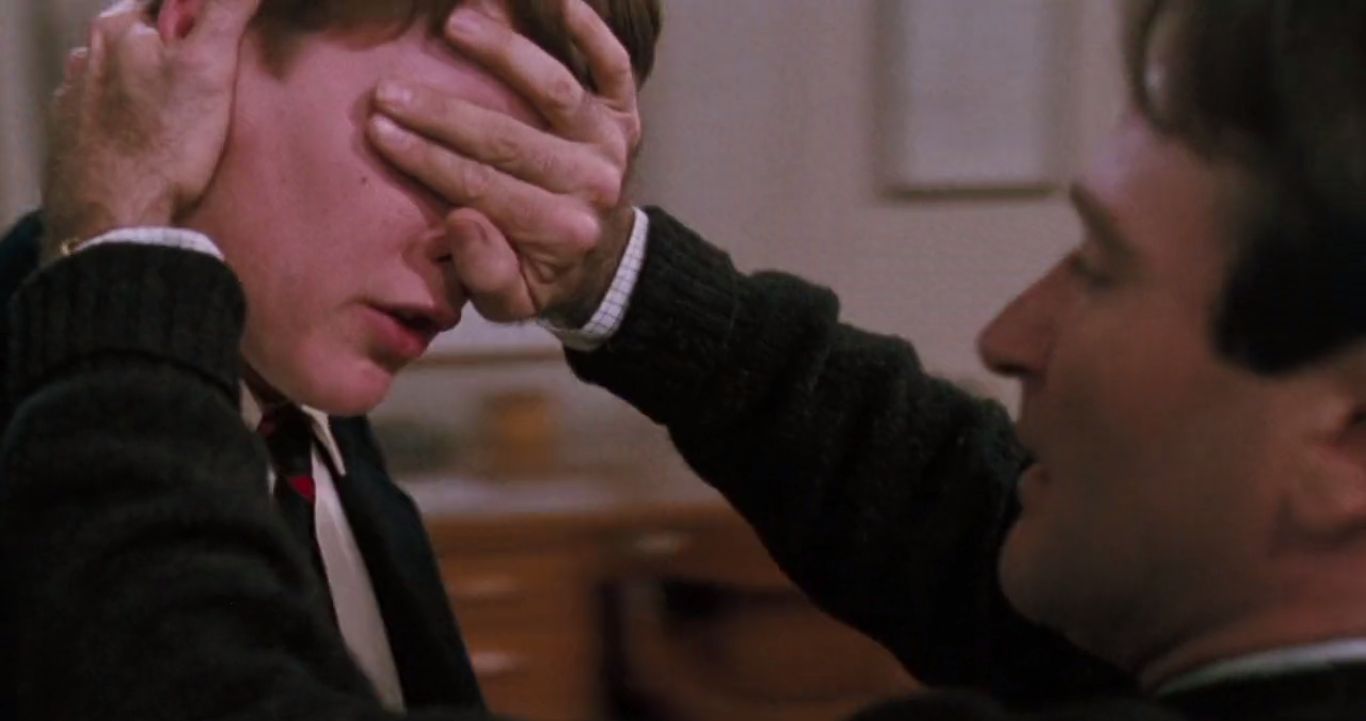
Because of his methods he is called into the principal’s office, having to justify his lessons. Naively he tells the principal he wants to teach them about the ‘dangers of conformity.’ What’s the reply?
The curriculum here is set, it’s proven it works. If you question it, what’s to prevent them from doing the same?
Well, I’ve been to the principal’s office often enough to know that this is not an old-fashioned sentiment. These words are probably not used anymore, but the ideas are still there, rusty but stone-like, unmovable and terribly scared of change. I surely learned that.
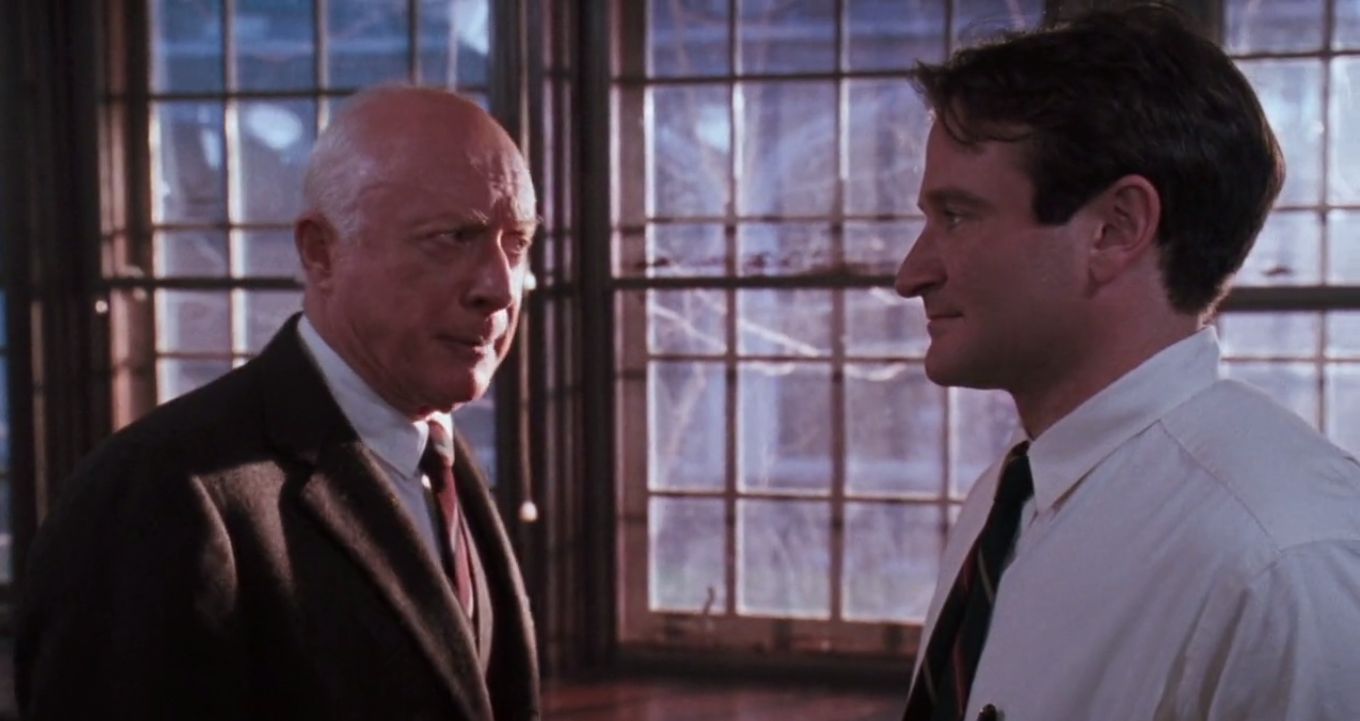
The ending may be heavy-handed but I could never deny its intention and attitude. Watching that movie again now made me extremely sad for seeing Williams doing such a brilliant job. But it also made me realize more than I had thought, what a huge impact this movie had on me and my life. I really wonder if anything could have had a bigger influence on my job than this movie. I dearly thank the movie for that and Robin Williams for giving me such a role model. To use some somewhat modern-day poetry: Now my heart is full. But I could explain and I tried to.

